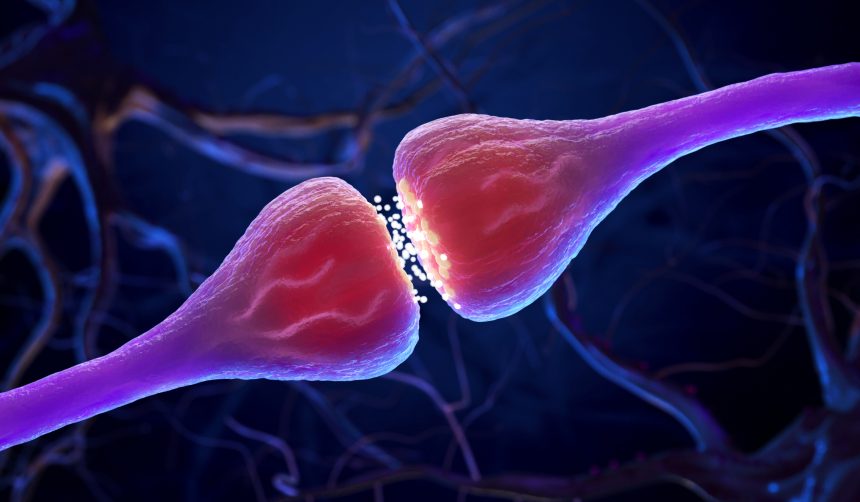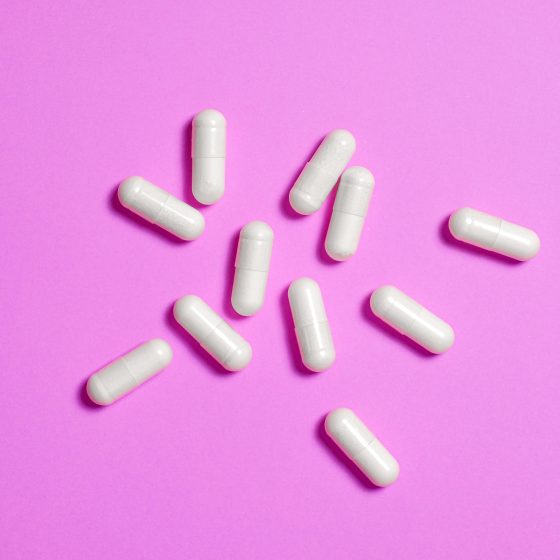Attention deficit hyperactivity disorder (ADHD) is a complex developmental condition that affects both children and adults.
The hallmark features of ADHD include inattention, distractibility, hyperactivity, and impulsivity. People with ADHD often have trouble paying attention, staying on task, sitting still, or acting without thinking.
In Australia, stimulant medications such as methylphenidate (Ritalin™, Concerta™) and amphetamines (Vyvanse™, Dexamphetamine) are frequently prescribed as a first line medications to help treat the core symptoms of ADHD.
How Do Stimulants Work?

Our brains are composed of billions of nerve cells called neurons, which form a complex network, similar to a vast web of telephone lines, allowing communication throughout the body.
Interestingly, neurons don’t connect with each other directly. Instead, they communicate by sending chemical signals across tiny gaps at their endings, known as synapses. These chemical messengers, called neurotransmitters (including dopamine and noradrenaline/norepinephrine), are essential in regulating various brain functions and play a key role in how ADHD medications affect the brain.
The prefrontal cortex, located in the front part of the brain, plays a crucial role in managing many of the cognitive processes affected in Attention-Deficit/Hyperactivity Disorder (ADHD). It is responsible for performing what are often called executive functions, which include: Attention and Focus, Impulse Control, Working Memory, Organisation, and Emotional Regulation.
Stimulant medications like methylphenidate and amphetamines work by regulating levels of dopamine and noradrenaline/norepinephrine, boosting the function of the prefrontal cortex and alleviating ADHD symptoms by improving focus, attention, and impulse control.
How Do Stimulants Affect my Prefrontal Cortex?
To continue with the telephone line analogy, stimulants ensure that signals (neurotransmitters) are sent more efficiently and clearly between the neurons.
In simple terms Methylphenidate (Ritalin™ and Concerta™) prevents neurons in the prefrontal cortex from reabsorbing dopamine and noradrenaline/norepinephrine too quickly making more available for sending messages.
Amphetamines (Vyvanse™, Dexamphetamine) on the other hand take a two-step approach. Like methylphenidate, they prevent the early reabsorption of dopamine and noradrenaline/norepinephrine in the prefrontal cortex. In addition, they stimulate the neurons to send out more chemical signals in the first place, ensuring there is an abundance of chemical messengers available to enhance communication between neurons.
Potential Side Effects of Stimulants

While stimulants are effective in managing ADHD symptoms, they can also come with side effects. Reassuringly, most of these are manageable with dose adjustments or changing medication types. It is, however, important to be aware of them.
Common Side Effects
- Appetite Suppression: A reduced appetite is common, which can lead to weight loss.
- Insomnia: Trouble sleeping is a frequent issue, as stimulants can cause wakefulness, especially if taken too late in the day.
- Increased Heart Rate & Blood Pressure: Stimulants can raise both heart rate and blood pressure, so regular monitoring is typically required particularly for people with pre-existing cardiovascular conditions.
- Irritability & Mood Swings: Some individuals may experience irritability, anxiety, or mood swings, particularly as the medication wears off (referred to as “rebound effect” or “crash”).
- Headaches and Stomach-aches: Some people may experience headaches or stomach discomfort when they start taking stimulants. These side effects are usually temporary and tend to resolve as the body adapts to the medication.
Less Common but Serious Side Effects
- Tics: (sudden, repetitive, and involuntary movement or sound that is difficult to control): In rare cases, stimulants can trigger or worsen motor or vocal tics.
- Cardiac Issues: Although rare, stimulant medications have been associated with a higher risk of heart problems in individuals with underlying heart conditions.
- Psychiatric Symptoms: Rarely, some may experience increased anxiety, paranoia, or even hallucinations and psychosis, particularly at higher doses.
Managing Side Effects
Many side effects lessen over time as the body adapts to the medication. Adjusting the dose, timing, or switching medications can often help manage troublesome side effects. It’s important to discuss any concerns with your healthcare provider to ensure that the treatment is both effective and tolerable.
Stimulants play a key role in managing ADHD, but balancing effectiveness with potential side effects is essential to achieving optimal outcomes. Always consult with your healthcare provider to tailor the treatment plan to individual needs.
Wrapping up
Stimulant medications like methylphenidate and amphetamines can be highly effective in managing ADHD symptoms.
Stimulant medications aren’t for everyone and alternative, non-stimulant medication options are available when this is the case. Your healthcare provider will be able to advise you accordingly.
However, for many, the benefits of stimulant medications greatly outweigh any downsides. If you or someone close to you is considering stimulant treatment for ADHD, it’s essential to work closely with a healthcare provider to monitor the effects and adjust the treatment plan as needed.
At Pandion Health, our team of experienced child and adolescent psychiatrists, behavioural paediatricians, psychologists and therapists are here to support you.
We are here to help you navigate ADHD treatment options, including medications and therapy. Contact us to learn more.

